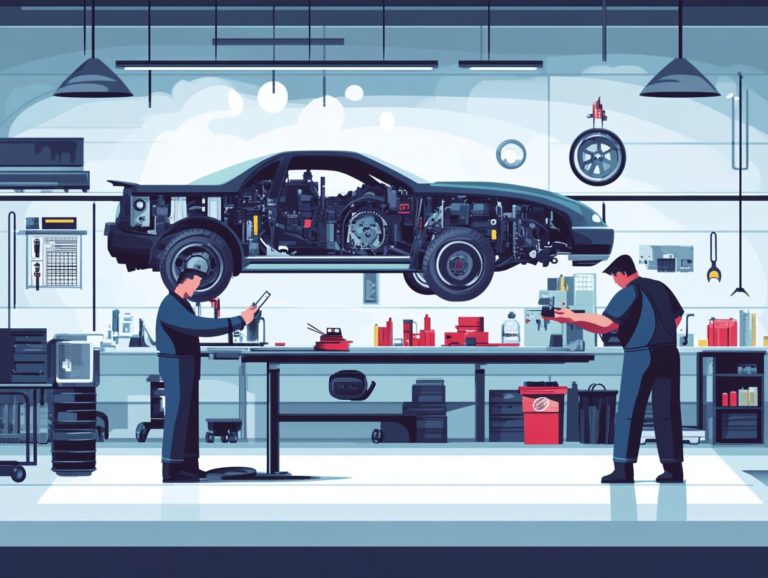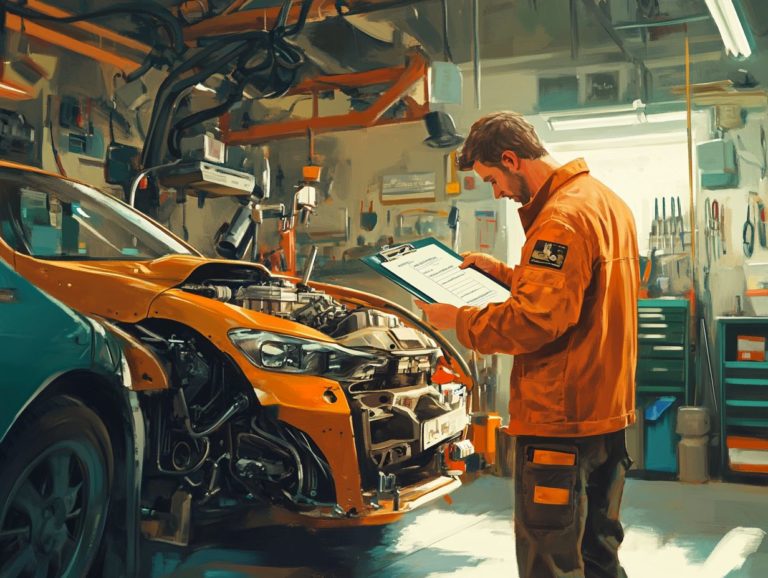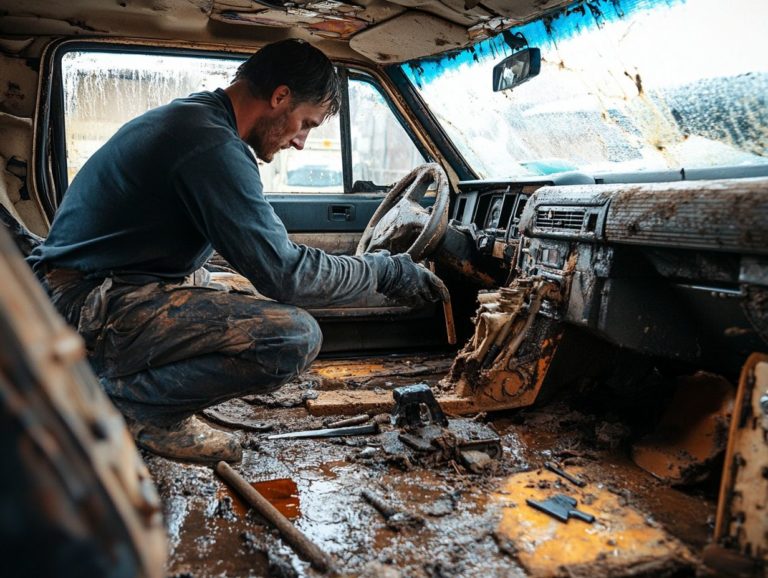Essential Car Inspection Tips for New Drivers
For new drivers, mastering car ownership is about so much more than simply learning how to drive. One crucial aspect that often slips under the radar is the importance of regular car inspections.
These checks aren t just about compliance; they play a vital role in keeping you safe while you drive and preserving your vehicle s longevity and performance.
In this article, you ll uncover the myriad benefits of regular inspections, along with a handy pre-inspection checklist that you can easily follow. You ll be guided through both exterior and interior assessments, essential engine checks, and the all-important test drive.
By the time you finish reading, you ll be equipped with invaluable tips to keep your car in pristine condition and boost your confidence behind the wheel.
Contents
- Key Takeaways:
- Why Car Inspections are Important for New Drivers
- Pre-Inspection Checklist
- Exterior Inspection
- Interior Inspection
- Engine and Mechanical Inspection
- Test Drive and Post-Inspection Steps
- Frequently Asked Questions
- What Are Essential Car Inspection Tips for New Drivers?
- When Should I Perform a Car Inspection?
- Why Is It Important for New Drivers to Perform Regular Car Inspections?
- Can I Perform a Car Inspection on My Own?
- What Should I Do If I Notice Any Issues During a Car Inspection?
- Are There Any Specific Tips for Inspecting a Used Car?
Key Takeaways:
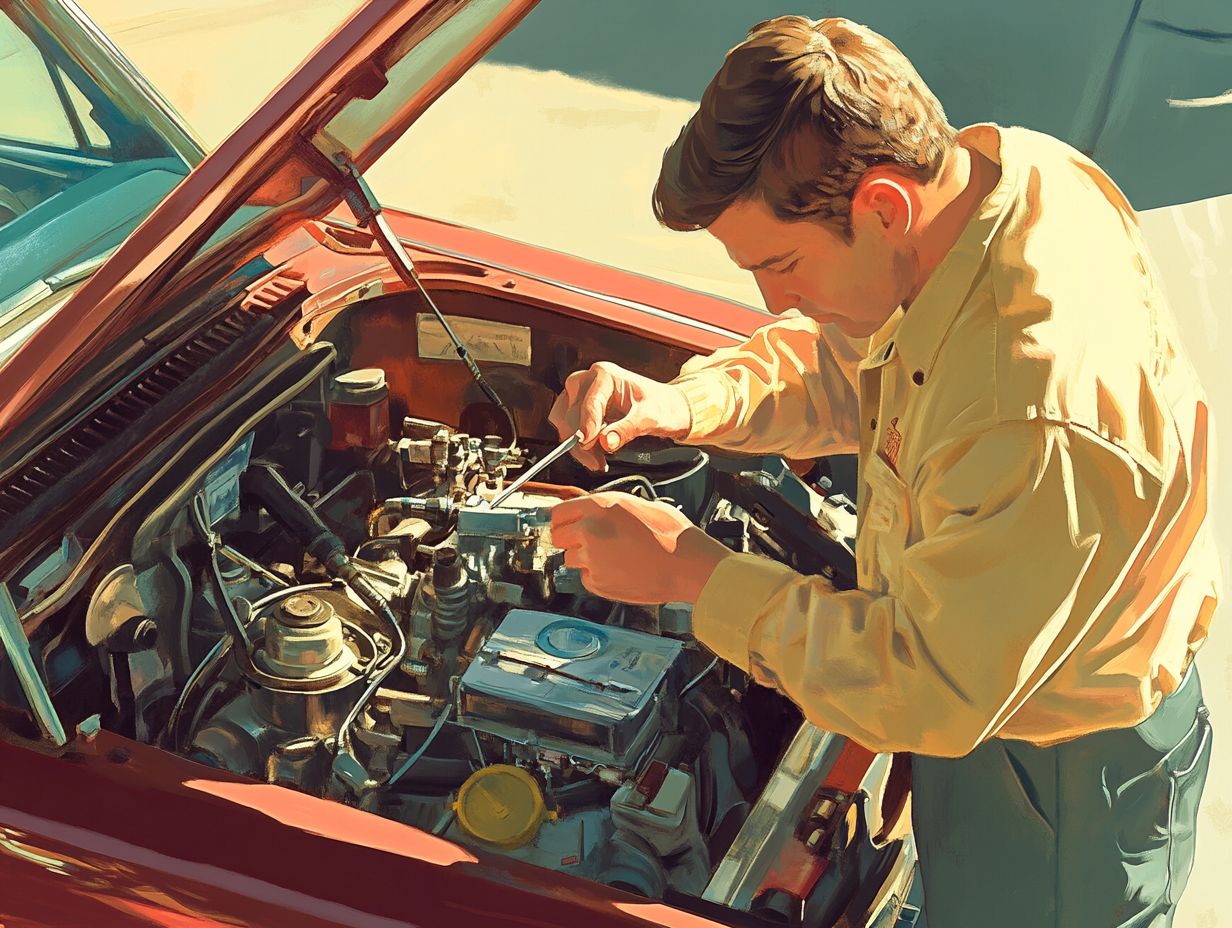
Regular car inspections are crucial for new drivers to ensure safety and prevent costly repairs.
Before taking your car in for an inspection, make the most of your car inspection by checking for any visible damage, wear and tear, and the functionality of safety features.
During the inspection, pay close attention to the exterior, interior, and engine components, and take a thorough test drive to evaluate performance.
Why Car Inspections are Important for New Drivers
Car inspections are essential for new drivers, serving not just to verify the vehicle’s functionality but also to improve safety and confidence while navigating the roads. For more details, check out this guide on how to prepare your car for inspection.
By committing to regular maintenance checks, you ensure that vital components such as brake pads, tires, and lights are in optimal condition. This helps you sidestep common issues like engine sputtering or battery failures.
A thorough vehicle maintenance checklist is a list to help you remember what to check on your car. It enables you to grasp the significance of routine inspections and fosters a sense of responsible car ownership.
This proactive approach not only enhances your driving experience but also extends the life of your vehicle, making every journey safer and more enjoyable.
Benefits of Regular Inspections
Regular inspections offer numerous benefits that are essential for maintaining a healthy vehicle and ensuring your driving safety over time.
By conducting routine checks, you can spot potential battery issues before they escalate, keep oil contamination in check, and monitor vital fluid levels such as coolant and transmission fluid. This proactive approach boosts your vehicle s performance and significantly cuts down on long-term repair costs, giving you peace of mind, especially if you re new to the roads.
When paired with having emergency kits and safety equipment onboard, regular inspections greatly enhance your overall safety.
Pre-Inspection Checklist
A pre-inspection checklist serves as a vital resource, ensuring your vehicle is roadworthy before you take it to a mechanic for a thorough inspection.
This proactive approach enhances safety and streamlines the inspection process, allowing you to address potential issues beforehand.
What to Look for Before Taking Your Car In
- Check tire pressure to extend tire life and boost fuel efficiency.
- Ensure all lights headlights, brake lights, and turn signals are functioning properly for safe driving, especially at night or in bad weather.
- Inspect fluid levels, such as oil, coolant, and brake fluid, to catch leaks that could lead to significant engine troubles.
- Look for common vehicle issues like low tire tread or faulty brake lights so you can make timely fixes.
Exterior Inspection
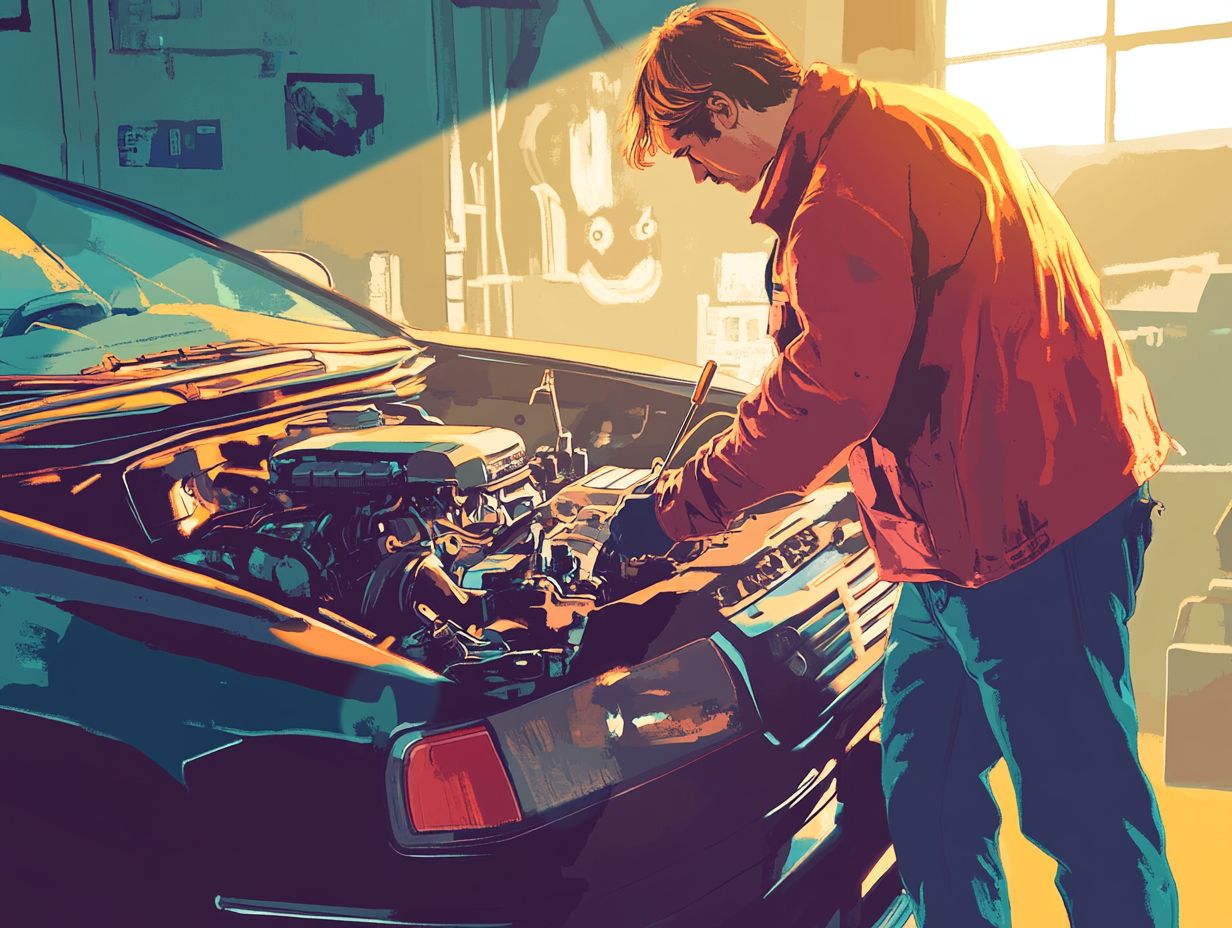
An exterior inspection is an essential aspect of vehicle maintenance, enabling you to detect any damage or wear that could jeopardize both the safety and functionality of your car.
This proactive approach helps maintain your vehicle s performance and ensures peace of mind while you re on the road.
Checking for Damage and Wear
Checking for damage and wear during an exterior inspection is crucial for maintaining the safety and reliability of your vehicle.
Regularly examining key features, like the deep grooves in your tires that help grip the road, is essential. Inadequate tread can lead to reduced traction and increased stopping distances, creating safety risks.
Keep an eye out for body dents that might suggest impacts and potential structural issues. Rust is another red flag, especially on older models, as it can compromise the integrity of both the exterior and the vital components underneath.
Implementing routine tire rotation not only extends the life of your tires but also ensures balanced handling. Investing in proper safety equipment becomes invaluable in the event of a breakdown.
Staying familiar with these indicators can significantly enhance your vehicle maintenance practices.
Interior Inspection
Conducting an interior inspection is essential for ensuring that all safety features and functionalities within the vehicle are performing optimally.
This meticulous attention to detail enhances your peace of mind and ensures a safer driving experience.
Assessing Safety Features and Functionality
Assessing safety features and functionality is a critical aspect of your interior inspection process. This directly influences the safety of both you and your passengers. You need to check the essential warning lights on the dashboard to ensure they function correctly and alert you to any potential issues.
Check that your emergency kit is complete, stocked with vital items such as:
- First aid supplies
- A flashlight
- Flares
These items can be invaluable in unexpected situations. Check the battery for corrosion and secure connections, as a failing battery can lead to breakdowns and serious safety hazards.
By systematically conducting these assessments, you enhance safety and take proactive steps to ensure preparedness for any emergencies that may arise on the road.
Engine and Mechanical Inspection
An engine and mechanical inspection is essential for pinpointing crucial components and fluid levels that significantly influence your vehicle’s overall performance.
By conducting this thorough examination, you ensure that every aspect of your car is functioning at its best, ultimately enhancing its reliability and efficiency on the road.
Examining Key Components and Fluid Levels
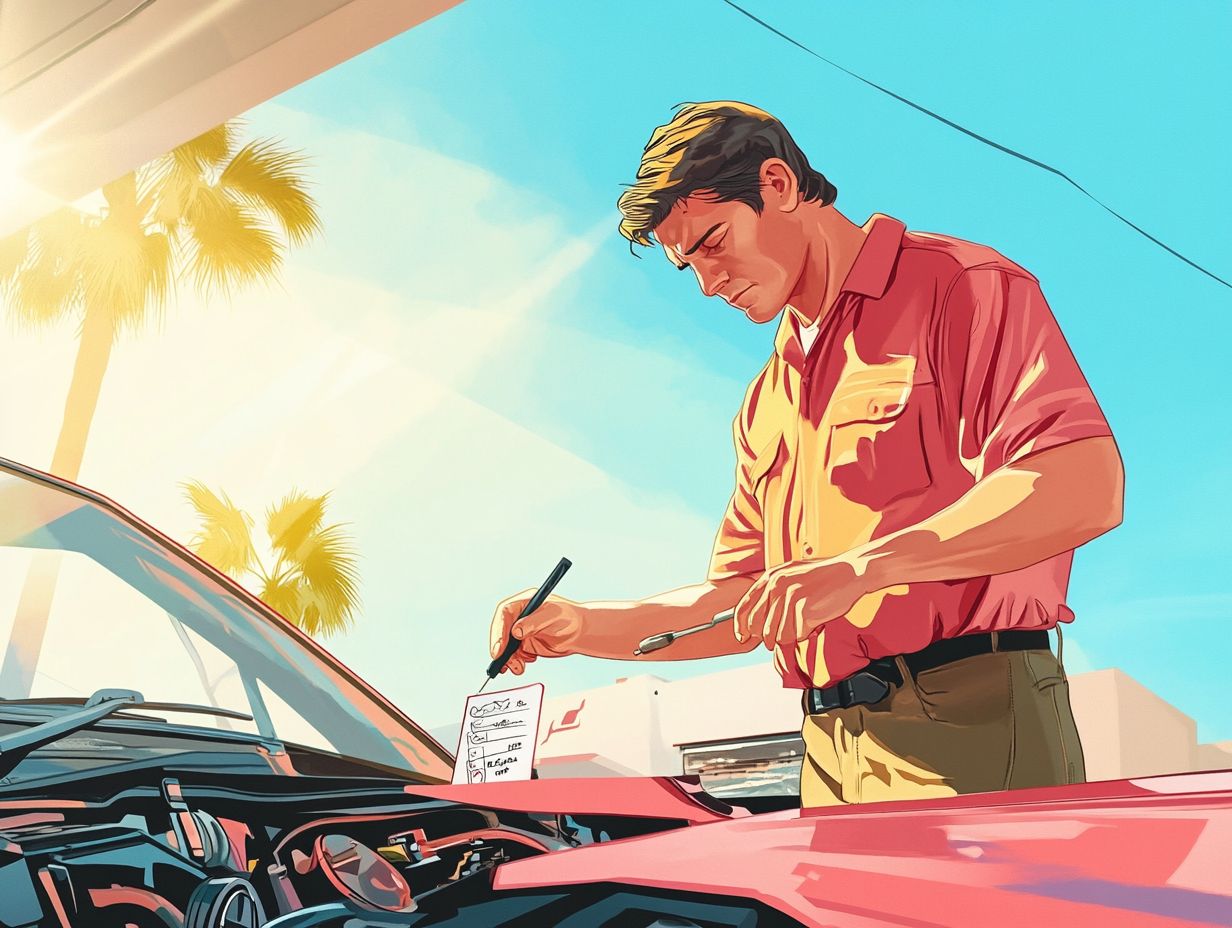
Examining key components and fluid levels during an engine inspection allows you to identify potential issues before they escalate into costly repairs.
For instance, checking your coolant levels is vital to prevent overheating. Ensuring that your transmission fluid is at the correct level can enhance shifting performance and prolong the life of the transmission.
Regular oil changes are equally critical. Fresh oil lubricates engine components efficiently and minimizes wear.
Don’t wait until it’s too late! Check for signs of oil contamination, such as discoloration or particles, which may indicate underlying problems.
By consistently attending to these maintenance tasks, you can preserve engine health and elevate the overall performance and longevity of your vehicle.
Test Drive and Post-Inspection Steps
Upon completing a meticulous inspection, it is essential to conduct a test drive. This step allows you to assess the vehicle’s performance and uncover any lingering issues that may need attention.
Evaluating Performance and Addressing Issues
Evaluating performance during a test drive is crucial for identifying any issues that could jeopardize your safety on the road. Be attentive to signs like engine sputtering, which could signal fuel system problems or ignition failures.
Any strange noises, such as grinding or knocking, might indicate deeper mechanical issues that warrant immediate attention. By properly assessing these symptoms, you can determine whether your vehicle requires repairs or just routine maintenance, such as:
- Oil changes
- Brake system checks
- Air filter replacements
Keeping a vigilant eye on these details can help you avoid larger, more expensive problems down the line. Sticking to a consistent maintenance schedule ensures your vehicle remains reliable, providing you with peace of mind as you navigate the roads.
Frequently Asked Questions
What Are Essential Car Inspection Tips for New Drivers?
1. Check your tire pressure, tread depth, and how your tires look and feel before driving.
2. Inspect all lights and signals to ensure they work properly.
3. Look at the oil level and condition, along with brake fluid and coolant levels.
4. Look for any visible damage or leaks under the car.
5. Test the brakes by gently pressing on the pedal and listening for unusual noises.
6. Don t forget to check the windshield wipers and fluid, as well as the windshield itself.
When Should I Perform a Car Inspection?
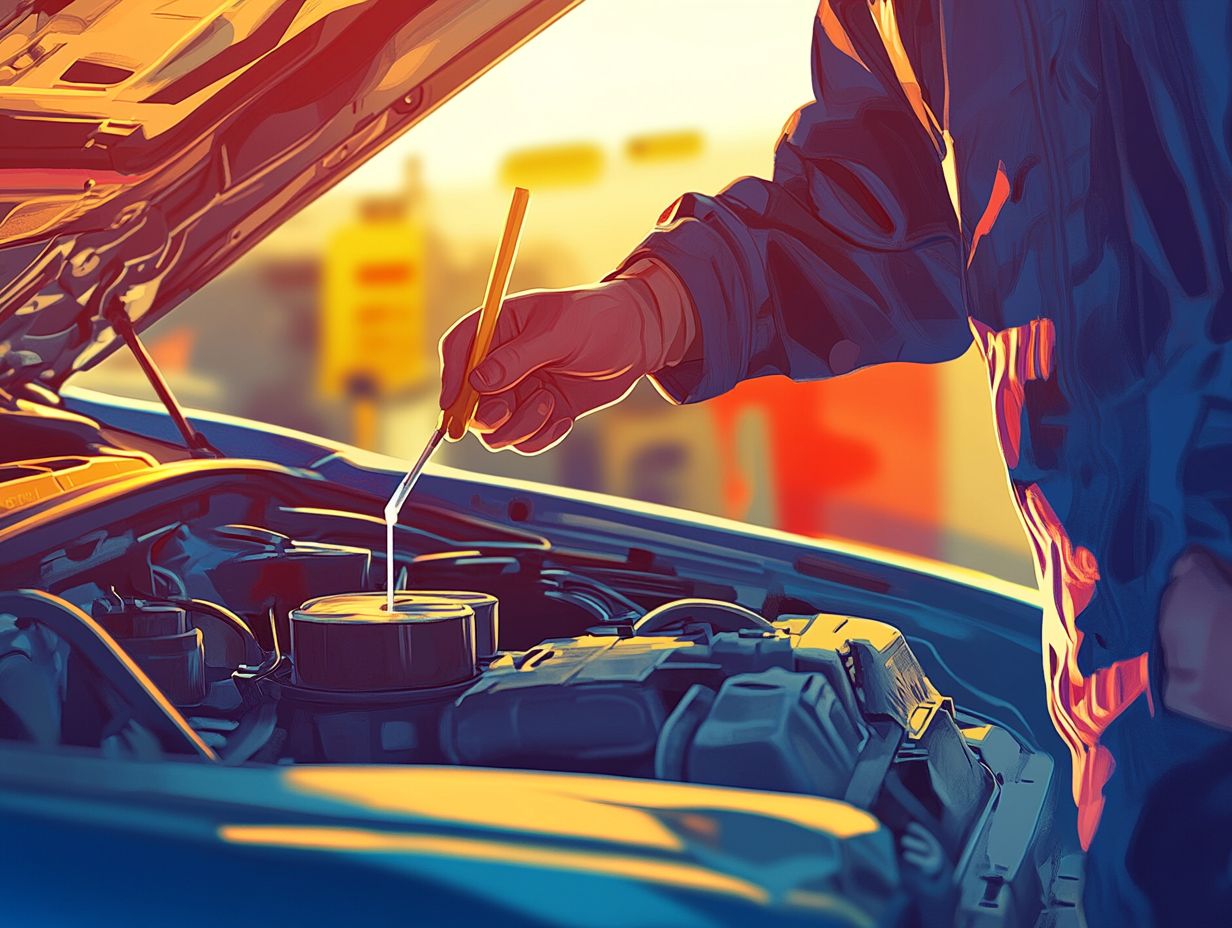
Perform a car inspection before every long trip. Additionally, you can refer to some essential inspection tips for first-time buyers and check your car at least once a month for regular maintenance.
Why Is It Important for New Drivers to Perform Regular Car Inspections?
Regular car inspections keep you safe on the road and are vital for new drivers to understand their vehicle’s needs. Knowing the essential factors in a comprehensive car inspection can greatly enhance this understanding.
Can I Perform a Car Inspection on My Own?
Yes, you can perform a car inspection on your own by following a checklist and using basic tools. If you re unsure about something or notice serious issues, take your car to a professional mechanic.
What Should I Do If I Notice Any Issues During a Car Inspection?
If you notice any issues during a car inspection, address them as soon as possible. This might mean taking your car to a mechanic or keeping an eye on the issue closely.
Are There Any Specific Tips for Inspecting a Used Car?
Yes, when inspecting a used car, pay attention to its overall condition, including mileage, maintenance records, and any previous accidents. It s also wise to get a professional inspection done before purchasing a used car.
Don t wait check your car today and ensure your safety on the road!


